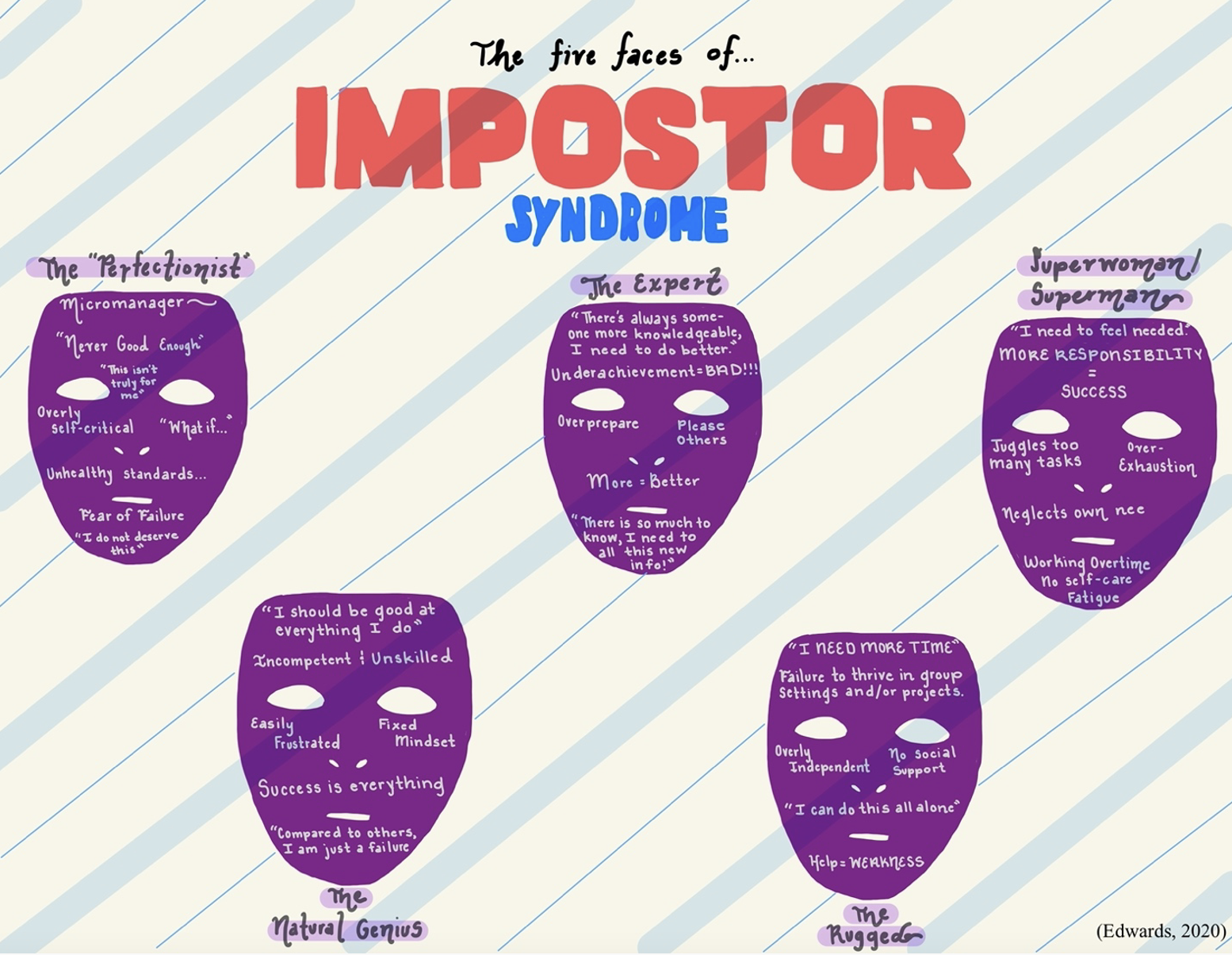- The Mr. Clarke Minute
- Posts
- Imposter Syndrome
Imposter Syndrome
A good thing?
Ah yes, Imposter Syndrome. Or should I say, hello darkness, my old friend.
If you listen closely, there is someone out there right now feeling surges of anxiety running through their body in preparation for a presentation, new job, a job interview, or maybe even just to submit an application.
You will often hear my guests and I discuss the role of imposter syndrome in our lives and the ways it interferes with our jobs. In the earliest stages of the podcast, I would often have this down as a topic to discuss with my guests. After a while, I began to remove it as I simply grew tired of the conversation, but it still seems to jump in almost every episode.
What is Imposter Syndrome? Without even taking a venture to google, my self-prescribed definition would be:
The shear diarrhea provoking panic associated with assuming the role as the knowledge keeper and hoping everyone does not find you to be completely stupid and then you get fired and then you die.
Hmm, google says it is “the feeling of anxiety and not experiencing success internally, despite high-performing in external, objective ways.”
I think my definition is much more fitting.
The panic I felt the first time stepping in front of a classroom felt like every insecurity I had ever built now full on display in front of everyone, and sooner or later they were all going to find out that I was unfit for the job. So much so that I developed an OCD tick with my neck which took months to overcome the feelings of extreme stress dealt with in such a short period of time (more on that in another newsletter to come).
Teaching always appeared to come so easily to our teachers we had growing up, and because it is the one career almost every single person sees modelled throughout their lives, we see ‘teacher’ as one thing yet we all had teachers who had expertise in so many different areas, it is understandable why we would feel the need to fit into all of these roles immediately if we are to accept the same title as our role models.
What I have learned, however, is Imposter Syndrome is a blessing, not a curse.
One of my university professors, Kent den Heyer, once said, every day as an educator will be a confrontation with the impossibility of teaching. The various methods, tactics, advice (solicited or unsolicited and sometimes even contradictory) you will receive over the first few years will be overwhelming. It is the emphasis on the impossibility of the educational craft which stuck. There are literally an infinite amount of strategies, interventions, methods, and pedagogies (?) that make the educational output for a teacher.
He went on to say when it comes to imposter syndrome, be weary of those who do not have it. If someone appears generally confident, never seems to be concerned, this should be considered a red flag. This could just be general comfort, but it could also be the case these people never go through the painstaking reflection and improvement of those grappling with trying to do better to overcome the imposter feeling.
In the book Think Again by Adam Grant, he highlights the opposition of Imposter Syndrome as being Armchair Quarterback Syndrome and how the experience of feeling like an imposter may actually be our saving grace from suffering from the Dunning-Krueger effect, a situation no self-respecting educator wants to be in. You can almost just remove the ‘T’ in imposter and call it imposer syndrome if we want to get real punny.

(Grant, 77)
“Confidence can make us complacent. If we never worry about letting other people down, we’re more likely to actually do so. When we feel like imposters, we think we have something to prove. Imposters may be the last to jump in, but they may also be the last to bail out … Having some doubts about our knowledge and skills takes us off a pedestal, encouraging us to seek out insights from others. As psychologist Elizabeth Krumrei Mencuso and her colleagues write, ‘Learning requires the humility to realize one has something to learn.’”
In the subsequent story he shares of Icelandic politician Halla Tomasdottir, who eventually went on to challenge the incumbent in a time of crisis despite feeling absolutely nauseated by the imposter feelings which creeped up atfter being encouraged by members of er local community to run, her response of finally realizing her feelings of Imposter Syndrome were simply just feelings, she remarked “Who am I not to serve?”
And that, my friends, is exactly it. Who are you not to serve. Embrace your imposter feelings, humbly improve in your domain, and then find another lane where you can be an imposter.
The Pod this Week:
Sam Salem - Sam is a standup comedian and teacher from Los Angeles, CA. On the episode, Sam and I discuss starting teaching during covid and how it steered him toward comedy, the stories of things students say to him during his time subbing, his rise in popularity on social media, his experience coaching college basketball, negative teachers, and, much more.
Next Week on the Pod:
Faith McPeek - Faith is an elementary school teacher and popular TikTok personality based out of Illinois. On the episode, Faith and I discuss how adults are the most difficult part of teaching, kids vaping earlier and earlier, the weirdness of standardization in elementary, how we used to use Pictochat on our DS back in the day, Fortnite, and, much more.
Grant, Adam. Think Again. Viking, 2021.
